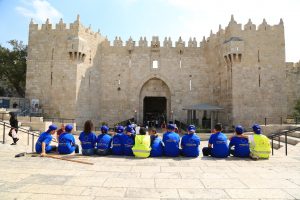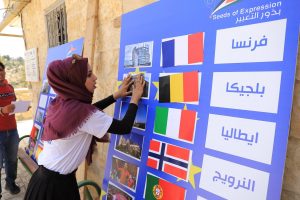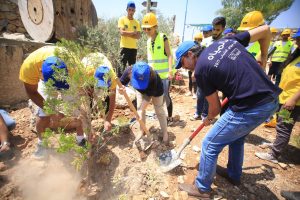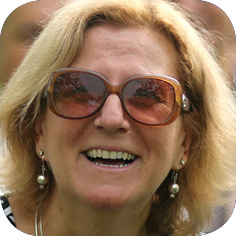I still remember my first day in Palestine in September 2015. During the day, I visited Ramallah and was immediately struck by the vibrancy of the city; young people – shopping, eating, working, living – were all around me, and I was filled with curiosity about the potential of Palestine and its youth. This was a far cry from the sleepy, aging Italian village where I grew up. In the evening, as I sat on the balcony of my temporary accommodation in Jerusalem, the cool breeze fanning my hair, I watched the sunset and tried to imagine the exciting journey that lay ahead of me in this special land, wondering whether I could contribute just a little to improving the lives of the young people I had met during the day on the other side of that wall. Little did I know back then that by 2019, European missions in Jerusalem and Ramallah would be admired by European diplomatic representations across the world for their progress in working together.

I arrived into an active community of European Development Partners that had already been working closely together since 2011 with the aim of revising their partnerships with Palestinians. European partners – that is the European Union with its 28 member countries, and Norway and Switzerland – believed that assistance should support and protect the viability of the two-state solution. However, each European country had its own approach to reaching this goal, which led to many overlapping programs and funding streams that reduced the effectiveness and efficiency of European funds. European partners owed it to Palestinians, as well as to our own taxpayers, to do things more efficiently and effectively. That is why, when I arrived, European Development Partners worked together under a common local development strategy, adhered to a certain division of labor, and jointly monitored progress in a few key sectors.
In 2016, the Palestinian Authority embarked on the design of a new strategy that culminated in the National Policy Agenda 2017–2022. At the same time, European Development Partners began to design their own umbrella strategy, far more ambitious than anything previously undertaken. The European Joint Strategy 2017–2020: Towards a Democratic and Accountable Palestinian State frames European cooperation with Palestinians in the West Bank, the Gaza Strip, and Palestinian refugee camps across twelve sectors, grouped into five pillars and five crosscutting themes, including youth. The strategy, which aligns with the National Policy Agenda, provides a framework through which European Development Partners can support Palestinian partners, including the Palestinian Authority, UNRWA, and community groups in a more coordinated way, while also recognizing the challenges to Palestinian development caused by the occupation and geographic fragmentation. With this strategy, European partners are sending a clear signal that they speak with one voice and are united in their objectives within the Palestinian context.

The European Joint Strategy 2017–2020, the first of its kind in Palestine, is now over two years old. It has significantly altered the way in which Europeans work among themselves, and I hope that our Palestinian partners have been able to discern benefits from this change. This issue of This Week in Palestine showcases just a few examples of the many joint projects and activities that European partners have taken on with the aim of improving the lives of Palestine’s youth by maximizing the potential of each country’s specialties and knowledge, and taking advantage of the economies of scale that can come from collective action. Each article is written by a representative from a different European Development Partner, reflecting the division of labor that exists in the group. Among other topics in this issue, you will read about the benefits that young farmers will be able to enjoy through our large agricultural program, the European efforts to promote gender equality within programs that specifically target youth, and the challenges that face educational establishments in East Jerusalem. You will learn the scale of European engagement with Palestinian youth and our sincere efforts to address the issues that face young people.

Nevertheless, there is more that we can do. European partners are committed to continually improving their assistance and to match it to the priorities of the local population. Our future collective action, after the current joint strategy expires in 2021, will depend on the plans and ambitions of our Palestinian partners, including those of youth as they represent such an important constituent group of Palestinian society. We are currently conducting a review of the European Joint Strategy 2017–2020 to check whether the strategy remains relevant and whether we are sticking to the promises therein. The outcome of this review will also affect how we proceed post2020. In any case, European partners will strive to work ever more closely with each other to ensure that transaction costs for Palestinian partners are as low as possible and that our financial assistance is most effectively protecting the viability of the two-state solution while also leaving no one behind and bringing Palestine closer to its Agenda 2030 targets.
Unfortunately, I will not be here to participate in this next stage, as my posting to Palestine will end in 2019. Nevertheless, be assured that Palestine will always remain in my heart. I will always remember what Mahmoud Darwish once said: “Palestinians suffer from an incurable disease called hope.”
I will continue to watch keenly as Palestinians progress towards the national aspirations that they decide upon.
Article photos courtesy of the European Union.


